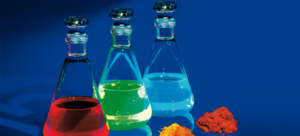The Lighting Japan 2016 conference was held in mid-January, where Sumitomo and Merck revealed the specifications of their soluble OLED materials. Compared to Universal Display’s evaporable materials, efficacy and lifetime are lower for the soluble red materials, and lifetime is lower for the soluble green materials. However, efficacy for green soluble/evaporable materials is largely identical.
| Comparison of Soluble Materials for OLED lighting Technology | ||||
|---|---|---|---|---|
| Vendor | Merck | Sumitomo | DuPont | UDC |
| Material Type | Small molecule soluble | Polymer soluble | Small molecule soluble | Small molecule evaporable |
| Red efficacy (cd/A) | 23 | 24 | 0 | 0 |
| Red CIE (x,y) | 0.65, 0.35 | 0.66, 0.34 | 0.65, 0.35 | 0.66, 0.34 |
| Red lifetime T95 at 1,000cd/m² | 10,000 | 5,800 | 9,500 | 23,000 |
| Green efficacy (cd/A) | 83 | 75 | 80 | 85 |
| Green CIE (x,y) | 0.32, 0.64 | 0.32, 0.63 | 0.27, 0.27 | 0.31, 0.63 |
| Green lifetime T95 at 1,000cd/m² | 8,500 | 9,700 | 6,000 | 18,000 |
| Blue efficacy (cd/A) | 6.6 | 5.3 | ||
| Blue CIE (x,y) | 0.144, 0.94 | 0.14, 0.09 | ||
| Blue lifetime T95 at 1,000cd/m² | 5,800 | 1,700 | ||
| Source: OLED Association | ||||
Analyst Comment
The quest has been on for a long time to replace evaporation as a way of applying OLED materials. It’s so much better to be able to place the materials using inkjet or other deposition methods. However, it remains a challenge. (BR)

